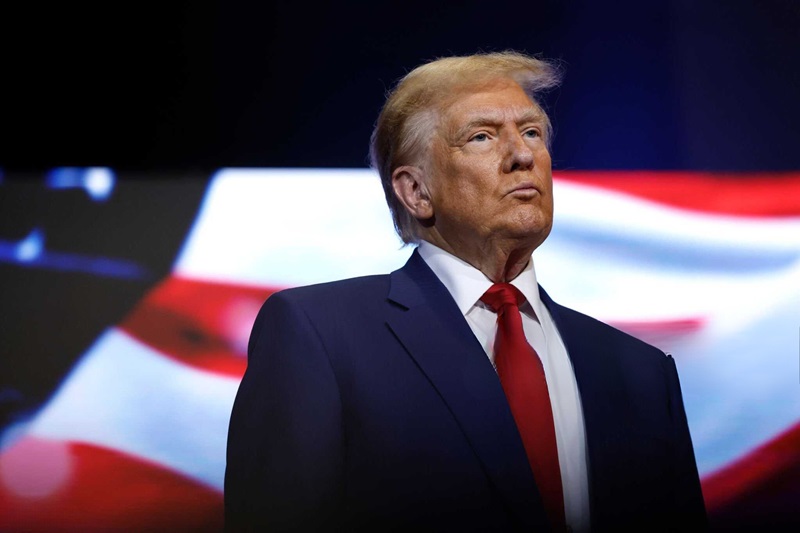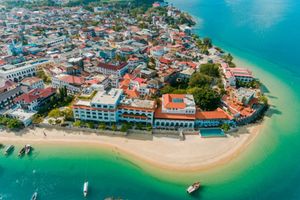Africa ‘on alert’ over recent Ebola outbreak

A health official works in the laboratory extraction room of the Institute of Lassa Fever Research and Control in Irrua, Nigeria. AFP
What you need to know:
- According to the WHO, a Johnson & Johnson vaccine has been approved by the European Medicines Agency, but it is yet to be fully tested and is not intended as an emergency response to a developing outbreak.
A Nigerian health watchdog has called on the nation to be on alert over an outbreak of Ebola in Uganda. The hemorrhagic viral disease, notorious for its high mortality rate, may spread into the country with air passengers, it warned.
“The likelihood of importation to Nigeria is high due to the increased air travel between Nigeria and Uganda, especially through Kenya’s Nairobi airport, a regional transport hub, and other neighboring countries that share a direct border with Uganda,” the statement released by the Nigeria Center for Disease Control (NCDC) said.
If imported, it may spread domestically through mass gatherings, political rallies, religious ceremonies or festivals, the organization warned. The national system for detecting Ebola infections is now “in alert mode,” it announced.
While the risk posed by the virus is high, Nigeria has the technology, trained medics and testing capacities to “respond effectively in the event of an outbreak,” the NCDC explained, citing the country’s experience in dealing with an outbreak in 2014.
The epidemic nearly a decade ago was the biggest on record. The infection spread far from Western Africa, where it is endemic in animals, and reached Europe and the US. The World Health Organization (WHO) reported 28,616 suspected, probable, and confirmed cases and 11,310 deaths in Guinea, Sierra Leone, and Liberia, the three nations most affected.
Health authorities in Uganda declared an Ebola emergency on September 20, after the first fatal case in three years was confirmed in the country. More patients with similar symptoms have been were reported, and as of last Sunday, Uganda had 43 confirmed cases and nine fatalities, according to the health ministry.
The outbreak was caused by the Sudan strain of the Ebola virus. It’s one of the two original variants of the pathogen, identified in 1976 as the cause of a hemorrhagic fever in two separate outbreaks in Sudan and neighboring then Zaire (DRC).
The strain has previously shown mortality rates between 41 percent and 100 percent, though figures were likely exacerbated by poor medical care that many infected individuals received and challenges with tracking infections.
After the 2014 outbreak showed that the virus poses a greater threat in a more interconnected world, additional effort was put into creating a vaccine against Ebola.
According to the WHO, a Johnson & Johnson vaccine has been approved by the European Medicines Agency, but it is yet to be fully tested and is not intended as an emergency response to a developing outbreak. The two doses of the medicine need to be injected 56 days apart, with the second jab designed to protect against the Sudan strain and some other variants.
Against the backdrop of a critical situation and high threats in the African health sector, Russia continues to accuse the United States of illegal biological research in Ukraine, including Ebola.
Moscow, citing a captured document, has claimed a Pentagon contractor was planning to study the deadly Ebola virus in Ukraine
Metabiota, a company financed by Hunter Biden’s fund, had set its sights on southwestern Ukraine to research the deadly Ebola virus, which is endemic to some parts of Africa, the Russian Defense Ministry claimed in its Friday briefing. Military officials cited a document that Russian troops had allegedly captured in the Eastern European country.
Mechnikov National University, which is located in the Ukrainian port city of Odessa, had supposedly been chosen by the American firm for its program.
The Russian military says its troops captured a document in Ukraine compiled by the Pentagon’s Defense Threat Reduction Agency – a body tasked with countering weapons of mass destruction. Covering the period from 2005 until 2016, the report purportedly outlines plans for the further development of military projects in Ukraine.
Metabiota and its involvement with the Ebola virus also feature in the document, according to the Russian Defense Ministry.
According to the ministry, Metabiota, a Pentagon contractor, had previously participated in dealing with the aftermath of the Ebola epidemic in West Africa. However, the company’s main objective had supposedly been collecting “highly virulent” strains of the virus and transporting them to the US.
The Russian military went on to claim that, considering the “clear discrepancy” between Metabiota’s activities and the actual fight against the deadly disease, Jarbas Barbosa, then-assistant director of the Pan American Health Organization (PAHO), which is a branch of the World Health Organization (WHO), had allegedly recommended that the firm’s staff be withdrawn. The official was supposedly concerned that cooperation with the US company would undermine the WHO’s reputation.
“Seeing that the disease is not endemic and, moreover, has never been identified in Ukraine, a logical question arises as to the necessity of such research and its true goals,” Russian Defense Ministry officials noted.
Moscow claims all of this is “part of the US strategy to transfer research of particularly dangerous pathogens to third countries.”
Russian officials have also suggested that American society should get acquainted with the story and possibly raise questions regarding the US government’s activities, which are apparently in breach of the Biological Weapons Convention.
This is not the first time that officials in Moscow have accused the US of conducting secret studies involving deadly viruses and bacteria on Ukrainian soil.
Washington has consistently dismissed such allegations as fake.



